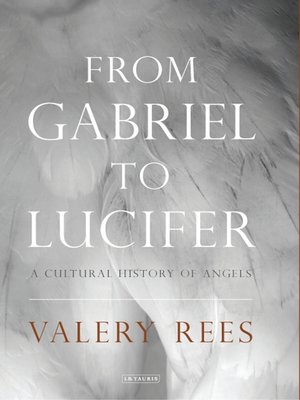
Sign up to save your library
With an OverDrive account, you can save your favorite libraries for at-a-glance information about availability. Find out more about OverDrive accounts.
Find this title in Libby, the library reading app by OverDrive.



Search for a digital library with this title
Title found at these libraries:
| Library Name | Distance |
|---|---|
| Loading... |
Fiery the angels fell; slow thunder rolled around their shores, burning with the fires of Orc.' Whether in recent popular culture, or back across countless centuries, angels have perpetually enthralled, mystified and even terrified us. 'Every single angel is terrible,' wrote the German Romantic poet Rilke: 'and so I hold myself back from the dark bird-cry of my anguished sobbing.' For some in the sceptical, post-Enlightenment West, angels may be no more than metaphors: poetic devices to convey, at least for those with a religious sensibility, an active divine interest in creation. But for others, angels are absolutely real beings: manifestations of cosmic power and energy with the capacity either to enlighten or annihilate those whose awestruck paths they cross.
Valery Rees here offers the first comprehensive history of these beautiful, enigmatic and sometimes dangerous beings, whose existence and actions have been charted across the eons of time and civilizations. From the ancient Sumerian and Akkadian winged figures, to Egyptian representations of Ma'at, Persian genii, Arab djinn, biblical cherubim, daemons of Hermes Trismegistus and Milton's defiant fallen angels, From Gabriel to Lucifer reveals a mesmerising trajectory of angelic belief. Whether exploring the feverish visions of Ezekiel and biblical cherubim; the Islamic archangels Jibra'il, Azra'il, Mika'il and Israfil; the austere and haunting icons of Andrei Rublev; or Wim Wenders' Wings of Desire, and the more benign idea of the ever-watchful guardian angel, the author shows that the very ubiquity of these implacable celestial messengers reveal something fundamental, if not about God and the devil, then about ourselves: our perennial preoccupation withhow to depict the transcendent.
Valery Rees here offers the first comprehensive history of these beautiful, enigmatic and sometimes dangerous beings, whose existence and actions have been charted across the eons of time and civilizations. From the ancient Sumerian and Akkadian winged figures, to Egyptian representations of Ma'at, Persian genii, Arab djinn, biblical cherubim, daemons of Hermes Trismegistus and Milton's defiant fallen angels, From Gabriel to Lucifer reveals a mesmerising trajectory of angelic belief. Whether exploring the feverish visions of Ezekiel and biblical cherubim; the Islamic archangels Jibra'il, Azra'il, Mika'il and Israfil; the austere and haunting icons of Andrei Rublev; or Wim Wenders' Wings of Desire, and the more benign idea of the ever-watchful guardian angel, the author shows that the very ubiquity of these implacable celestial messengers reveal something fundamental, if not about God and the devil, then about ourselves: our perennial preoccupation withhow to depict the transcendent.







